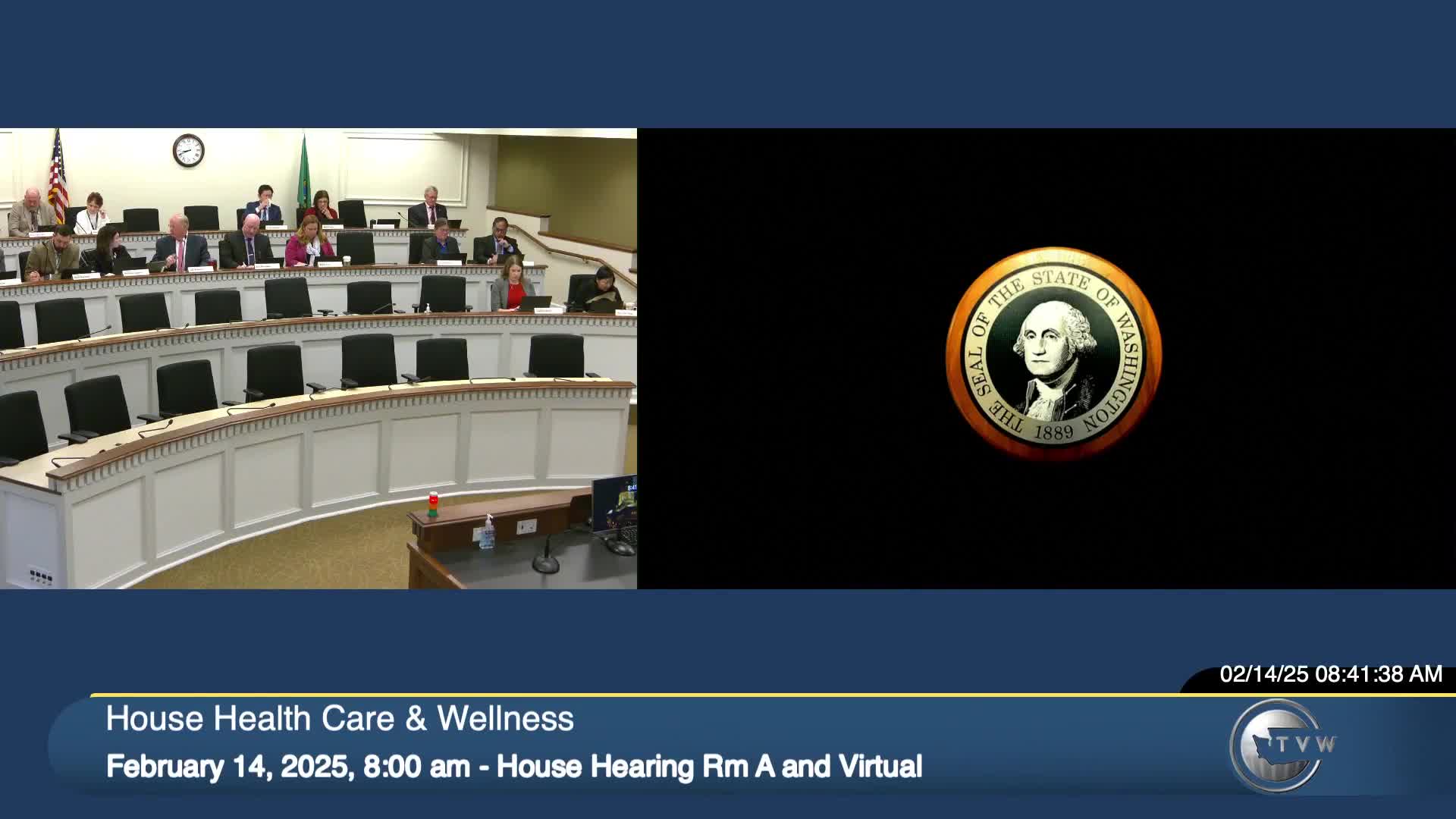Bill would define co-response teams, add peer-support protections and workers' comp presumption

Summary
House Bill 1811 would create a statutory definition for co-response teams, direct the University of Washington to develop a statewide peer-support program for co-responders, and extend workers' compensation presumptions during public-health emergencies to co-responder personnel. Proponents said the changes would formalize protections and support
House Bill 1811 would add a statutory definition of "co response" and expand legal protections and supports for co-responder personnel who work alongside law enforcement, fire or EMS to handle behavioral-health crises.
Committee staff said the bill defines co response as a partnership between first responders (law enforcement, EMS, firefighters) and human-services professionals (behavioral-health providers, nurses, peer support specialists or community health workers) that responds to people experiencing behavioral-health emergencies. The bill would require the University of Washington to develop a statewide peer-support program to help co-responders manage on-the-job trauma and would extend statutory peer-support confidentiality protections to co-responders.
"This core idea is straightforward but powerful," Representative Usman Salahuddin, the bill's prime sponsor, told the committee. "To integrate behavioral health responders with first responders ... so that we can ultimately deescalate situations, provide immediate care, and reduce unnecessary interactions with the criminal justice system."
HB 1811 would also add co-responders to the list of frontline employees eligible for a workers' compensation presumption of occupational disease during a declared public-health emergency when the occupational exposure relates to the contagious disease in question.
Proponents from municipal crisis-response agencies, fire departments and regional co-responder organizations described local programs that already operate as co-response systems and urged formal recognition and protections. Brooke Bittner, director of the Regional Crisis Response Agency (RACER) in North King County and president of the Co Responder Outreach Alliance (CROA), told the committee that co-response work is "a critical portion of our first response system" and that a statewide peer-support network for co-responders is already being developed in partnership with CROA and the University of Washington.
Testimony emphasized that co-response programs vary across jurisdictions and that coordination with existing community behavioral-health providers is essential. The Washington Council for Behavioral Health, representing community behavioral-health agencies, expressed support for training and workforce development but urged stronger language tying co-response expansion to coordination with the existing crisis system, noting the importance of transfer protocols, follow-up care and connections to designated crisis responders.
Several mayors and county officials described measurable results in their communities, including reductions in jail bookings and emergency department visits, and asked the committee to recognize behavioral-health responders as first responders with appropriate peer-support protections.
No formal committee action or votes were recorded during the hearing. Committee members and proponents said they would continue to refine statutory language on implementation details and funding.
Ending: Sponsors and advocates asked lawmakers to advance the bill while continuing coordination with community behavioral-health providers and finalizing peer-support and workers' compensation details.

